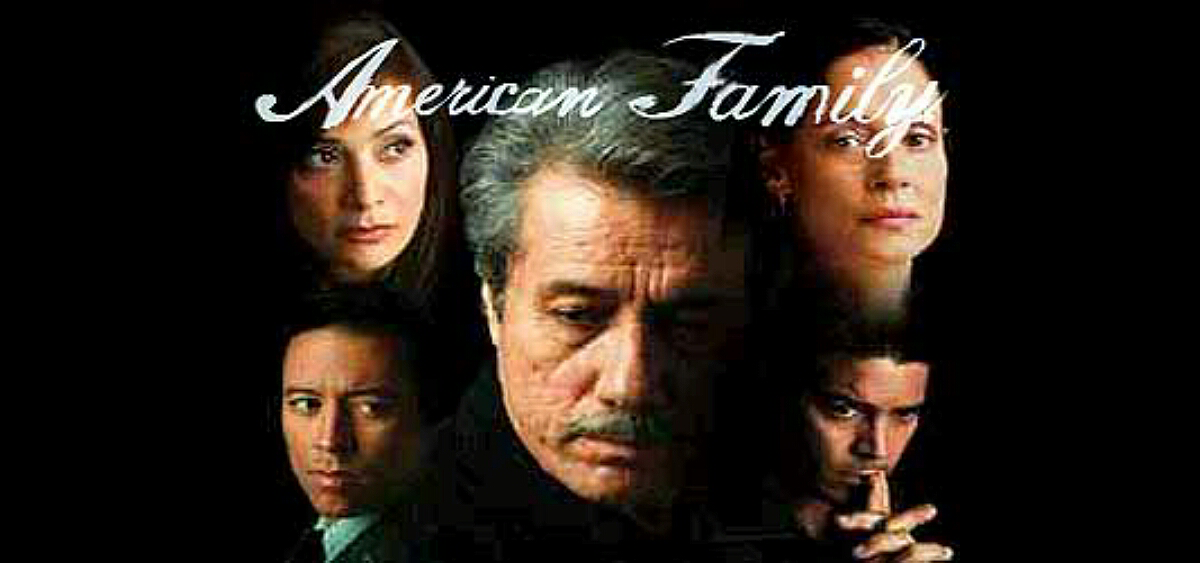The past few years haven’t been kind to television shows focusing on Latinx experiences, but at least the many cancellations gave us the chance to have nuanced conversations. We’ve been able to ask ourselves questions about Latinx identity, inclusion, internalized colorism, anti-Blackness, and craft.
It’s evident that along with social justice and identity issues, we must contend with the fact that many Hollywood producers, creators, and showrunners continue to flatten us into stereotypes that further facilitate the exclusion of Black, Asian, and Indigenous Latinxs.
But there’s also the other side: the traditionally marginalized writers, actors, directors, and others involved in the entertainment industry who need resources, creative agency, and backers who believe in the specificity of our stories. Trying to speak up for a diverse community adds a lot of pressure, but series such as the 20-year-old American Family have been showing that it can be done. Created by none other than Gregory Nava, American Family entertained while talking about important issues.
Initially pitched to CBS, the show eventually wound up on PBS and featured a stellar cast, including Edward James Olmos, Sônia Braga, Constance Marie, Raquel Welch, and Esai Morales. All of these actors have gone on to do critically acclaimed work in Hollywood and abroad (Braga is of Brazilian descent and is one of the most respected actors in her country).
The show was canceled after just two seasons (even on PBS!), but its official website is still live and American Family certainly deserves to live on in our imaginations. Here are five reasons why:
Specificity
It seems like every writer – from journalists to novelists to screenwriters to social media managers – have heard that their intentions and story must be specific in order to reach their intended audience. American Family definitely had this element. Set in East L.A. in the ’00s, the show depicted a Mexican-American family featuring five children who took different paths and formed a cohesive if somewhat dysfunctional unit. There is a doctor, lawyer, fashion designer, ex-gang member, and creative soul in the family.
Olmos plays Jess Gonzalez, a grumpy and politically conservative Korean War veteran who often butts heads with his daughter Nina, played by Constance Marie. His wife, Berta is a devoted mother who is much more laid back than her husband. Jess’ other children include introspective filmmaker Cisco, fashion designer and family vendida Vangie, doctor Conrado, and former gangster who is slowly piecing his life back together Esteban.
The show was ahead of its time in showing the generational and political divide that exists in many Latinx families, not to mention the fact that we can have any profession, outlook, and personality.
Depth
American Family covered the history and the present of its subject the Gonzalezes. It reached back to the Mexican Revolution, showing how previous generations were involved in the conflict. And in its present, it depicted family arguments about the US invasion of Iraq when objecting to President Bush’s plans was seen as controversial.
Location as Character
East L.A. has been an inspiration for many filmmakers over the years—even those who choose to use the city and its surrounding neighborhoods to reinforce harmful stereotypes. In his TV show, Gregory Nava uses East L.A. and its issues to let us know what the Gonzalez family stands for and how the neighborhood weaves into their lives.
Legacy
American Family was the first US-produced drama series to have an all Latinx cast. Further proving its credentials, it was nominated for 3 Emmy awards in 2004. If only more Latinx shows were able to follow its path to recognition instead of just its path to early cancelation!
Television History
As viewers and consumers who demand better representation, we should look back at shows like American Family and analyze what would be done differently today. But we should also remember that better television means depicting characters that can show our less favorable sides and imperfect selves. That’s how we get beautiful, honest art.


